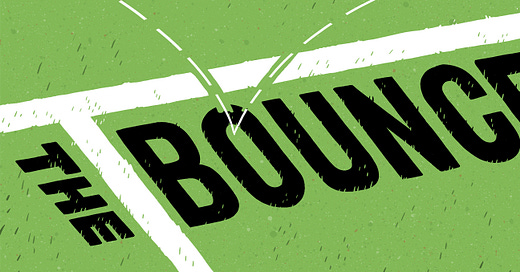Big fish joins lawsuit as calls for non-contact training get more urgent
PLUS: An NFL coach learns that emails never die; Baz and Flem could face off in the IPL final; Paul Ford reviews Golden Boy; and a giveway re-cap.
A high-profile All Black of the recent past has joined the action against World Rugby and various national governing bodies, with the lawsuit arguing the sport’s overseers failed to provide sufficient protection from the risks caused by concussion.
It is understood the player is considering whether to go public, but has requested anonymity at this stage.
Keep reading with a 7-day free trial
Subscribe to The Bounce to keep reading this post and get 7 days of free access to the full post archives.




